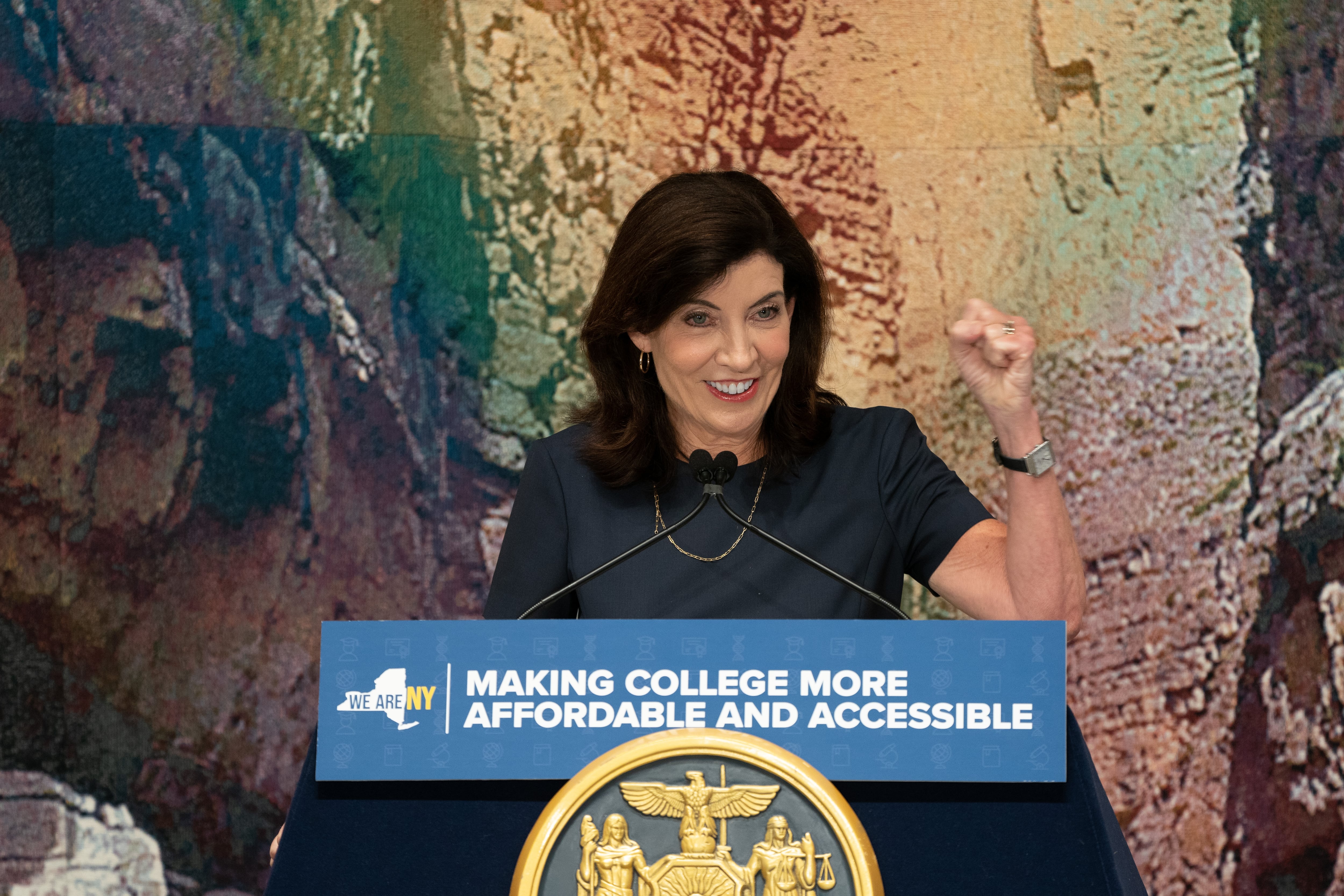Part-time CUNY and SUNY students can now apply for state tuition assistance, a move that advocates believe could be “transformative” for low-income students eyeing college.
The aid is also available to students attending private, nonprofit colleges.
The $150 million initiative will expand the state’s Tuition Assistance Program, or TAP, to reach 75,000 more students who are earning between six to 11 credits per semester, state officials said.
The program’s expansion was proposed by Gov. Kathy Hochul earlier this year and passed as part of the state budget in April. It now includes students who previously didn’t qualify for financial aid from the state because they weren’t taking enough credit hours.
Part-time students can now apply for aid for the fall semester. Full-time students can receive up to $5,665 a year. Aid will be offered to part-time students on a prorated basis.
The old policy worked against students who needed to balance college with work or care for children or relatives, and ultimately could have been shut out from higher education, Hochul argued.
“It doesn’t make sense,” Hochul said at an event Thursday in Manhattan to officially launch the new tuition assistance eligibility. “This is the group of people we should have invested in first.”
In the past, students were only eligible for TAP if they enrolled full time for two semesters in a row and met a slew of other requirements, including making at most $10,000 if they were single students without dependents. Those same requirements apply, except now, students don’t need to be enrolled full time.
Just over one-third of CUNY’s students were part time in the fall of 2021 across the system’s community colleges and its four-year schools, according to the most recent data available online. (That includes students in degree and non-degree programs.) Roughly 80% of first-time freshmen come from New York City public high schools, and half of CUNY’s students come from households with incomes less than $30,000, according to a 2021 report from the city comptroller.
In conducting research about the program, The Center For Urban Future found students who would enroll full time in order to qualify for tuition assistance, even if their schedules barely allowed for it. Sometimes, that led to low grades, causing them to lose financial aid. The center has long advocated to expand the eligibility for TAP.
Students often enroll part time because they need to work — sometimes, multiple jobs — to support their families, such as by contributing to rent, said Eli Dvorkin, editorial and policy director at the center, who called the new policy “transformative.”
“All of these costs make it so difficult to attend college at all, and for many students, the only option has been to attend college part time,” he said.
Jessica Kane, who spent six years as a college counselor in Queens and Harlem, said she knew students who didn’t pursue college after graduating because they couldn’t imagine juggling work with being a full-time college student. That was especially true of her undocumented and immigrant students from low-income families, who needed to contribute to their households. (Undocumented students can apply for state tuition assistance through the New York Dream Act.)
Part-time aid could also be helpful for students who want to enroll in a few trade certification courses at community colleges, such as to become an electrician or a plumber, that previously didn’t add up to enough credits, she said.
“Their other option was to go to trade school, which is quadruple the price,” Kane said.
Kane, who left the Queens high school for a Long Island school district last fall, said she hasn’t received communication about this new eligibility from the state. Had she known in the spring, when the state budget passed, she could have helped inform seniors’ decisions about college. State officials did not immediately comment.
“Access to education is always great,” Kane said. “It would just be nice to have more information about it.”
Reema Amin is a reporter covering New York City schools with a focus on state policy and English language learners. Contact Reema at ramin@chalkbeat.org.






